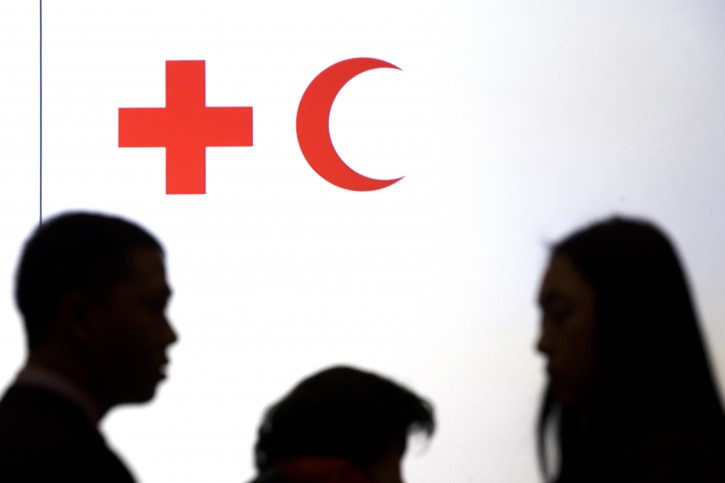
Geneva – The International Committee of the Red Cross is trying to reach out to the Islamic State group to get humanitarian aid to people in areas under its control, the organization’s director-general said Monday.
Yves Daccord made the comments to The Associated Press on Monday’s start to a major gathering of the Red Cross and Red Crescent held every four years. The conference in Geneva aims partly to reinforce international humanitarian law that has come under threat in conflict zones like Syria, Iraq, South Sudan, Afghanistan and Yemen.
The Red Cross is a “radically neutral” organization trying to have “a relationship where we can do it” with the Islamic State group, Daccord said. He said it’s very difficult in Syria because some IS-controlled areas “are pretty off-limits for any humanitarian.”
The organization needs above all to focus on Syrians inside the war-torn country, where more than 250,000 have been killed and at least a million wounded since the uprising began over four years ago, Daccord said. That means reaching out to all possible sides in the conflict — including IS.
“We try to have some connections in Iraq, with maybe what I would call ‘medium-level’ people — people who are supporting Islamic State group,” Daccord said. “We are trying to find some solutions” on a “pragmatic” basis, he added.
The reputation of the Red Cross as independent and impartial could help it achieve its end of getting through to the most vulnerable, Daccord said, noting that as many as 8 million people have been internally displaced in Syria — mostly the poorest people in the country who aren’t able to flee.
“We are just a humanitarian organization. Not more than that, not less than that,” he said.
As reported by Vos Iz Neias
